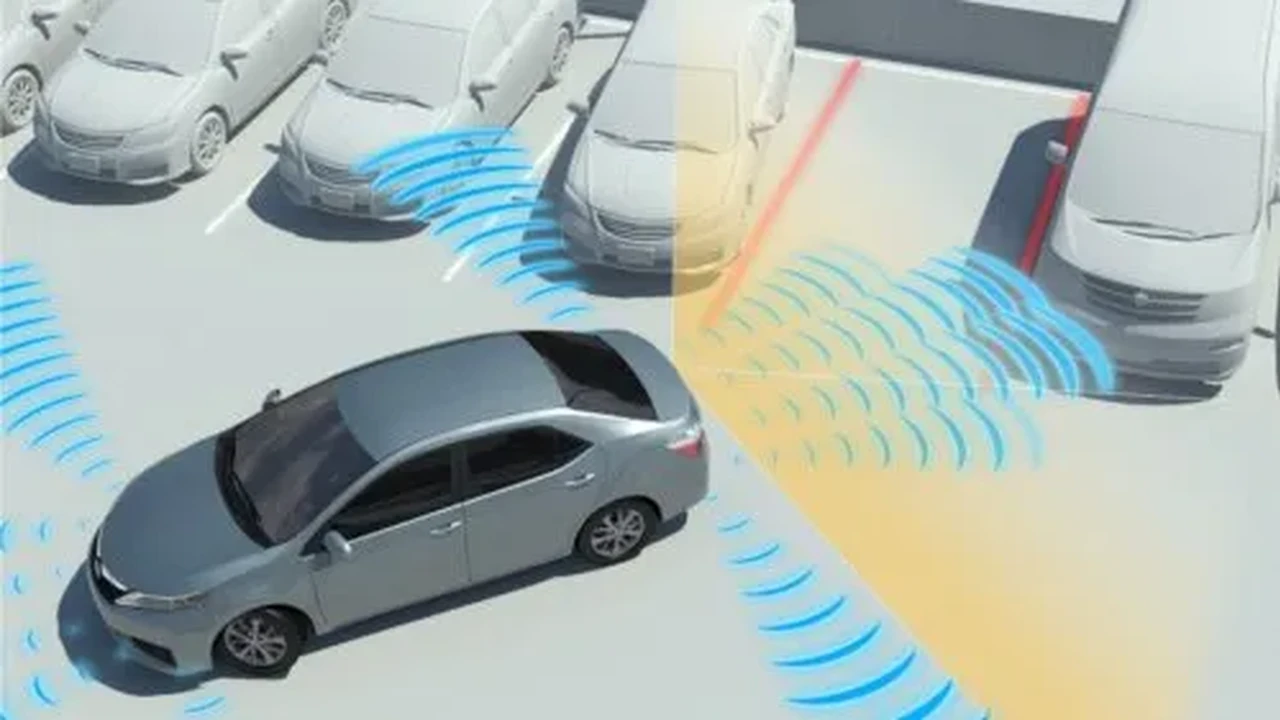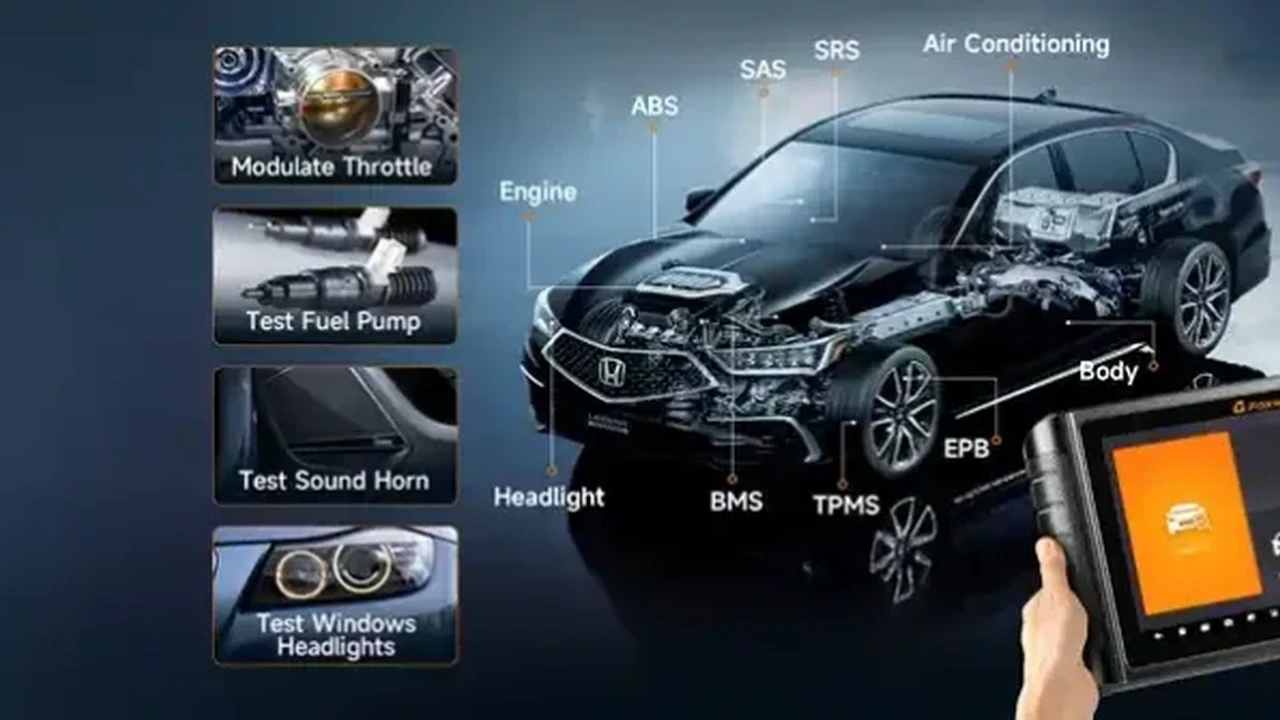Blind Spot Monitoring Systems for EVs: Enhanced Safety

Elevate your EV driving experience with these 7 innovative tech gadgets. Discover smart displays, diagnostic tools, and more for enhanced performance and convenience. Upgrade your ride with the latest EV technology.
OBD2 Scanners for EVs: Diagnosing EV Problems and Monitoring Performance
Okay, so your EV is pretty high-tech already, but did you know you can tap into even *more* data with an OBD2 scanner? These little gadgets plug into your car's OBD2 port (usually under the dash) and give you access to a wealth of information. We're talking battery health, motor performance, error codes (if something goes wrong), and a whole lot more. It's like having a doctor for your EV, always ready to diagnose potential issues.
Think of it this way: your EV's dashboard tells you the basics – speed, battery level, etc. But an OBD2 scanner lets you peek under the hood, so to speak, and see what's *really* going on. This is especially useful for understanding long-term battery degradation, tracking your energy consumption, and even clearing minor error codes yourself, saving you a trip to the service center.
But with so many OBD2 scanners on the market, how do you choose the right one for your EV? Let's dive into some options, their features, and what to consider before buying.
Top OBD2 Scanners for Electric Vehicles: A Comparison of EV Diagnostic Tools
Here are a few of the top OBD2 scanners that are especially good for electric vehicles, focusing on features that are relevant to EV owners:
- Bluedriver Bluetooth Professional OBDII Scan Tool: This is a popular choice because it works with both iOS and Android devices. It provides detailed diagnostic reports, including specific EV-related data like battery voltage and motor temperature. The app is user-friendly and constantly updated with new features and vehicle support.
- Thinkdiag OBD2 Scanner Bluetooth Diagnostic Tool: A more advanced option, the Thinkdiag offers bidirectional control, meaning you can not only read data but also send commands to your EV's systems. This is great for testing components and performing more in-depth diagnostics. It requires a subscription after the initial free period, but the added functionality can be worth it for serious EV enthusiasts.
- Autel MaxiCheck MX808: This scanner is a standalone device with its own screen, making it convenient to use without needing a smartphone or tablet. It offers a wide range of diagnostic functions, including ABS, SRS, and TPMS resets, as well as specific EV battery diagnostics. It's a good all-around option for both EVs and traditional gasoline cars.
- Lelink Bluetooth OBD2 Scanner: A budget-friendly option, this scanner works with various OBD2 apps on your smartphone. While it may not offer all the advanced features of the more expensive options, it's a great starting point for basic diagnostics and reading error codes.
Using an OBD2 Scanner with Your EV: Scenarios and Practical Applications
So, what can you *actually* do with an OBD2 scanner and your EV? Here are some common scenarios:
- Monitoring Battery Health: Over time, EV batteries degrade, losing their capacity to hold a charge. An OBD2 scanner can give you insights into your battery's state of health (SOH), allowing you to track its degradation and plan accordingly. This is especially useful if you're considering buying a used EV.
- Troubleshooting Error Codes: If your EV throws a warning light, an OBD2 scanner can read the error code and give you a description of the problem. This can help you determine if it's a minor issue you can fix yourself or a more serious problem that requires professional attention.
- Tracking Energy Consumption: Some OBD2 scanners and apps can track your energy consumption over time, allowing you to see how your driving habits and external factors (like weather) affect your EV's efficiency. This can help you optimize your driving style and save money on electricity.
- Customizing Display Data: Many apps allow you to customize the data displayed on your phone or tablet, so you can focus on the information that's most important to you. For example, you might want to monitor battery temperature, motor torque, or regenerative braking performance.
- Performing System Resets: Some scanners allow you to reset certain system functions, such as tire pressure monitoring system (TPMS) alerts or service reminders. Always exercise caution when performing system resets and consult your EV's owner's manual for instructions.
Choosing the Right OBD2 Scanner for Your EV: Factors to Consider
Before you rush out and buy an OBD2 scanner, here are a few factors to consider:
- Compatibility: Make sure the scanner is compatible with your EV's make and model. Some scanners are specifically designed for certain brands or types of vehicles. Check the manufacturer's website for compatibility information.
- Features: Decide which features are most important to you. Do you need advanced diagnostics, bidirectional control, or just basic error code reading? Choose a scanner that offers the features you need without breaking the bank.
- Ease of Use: Look for a scanner that's easy to use and has a user-friendly interface. Some scanners require technical knowledge to interpret the data, while others provide clear and concise reports.
- Connectivity: Most OBD2 scanners connect to your smartphone or tablet via Bluetooth. Make sure the scanner is compatible with your device's operating system (iOS or Android).
- Price: OBD2 scanners range in price from around $20 to several hundred dollars. Set a budget and choose a scanner that offers the best value for your money.
Product Recommendations and Pricing: Examples of EV Compatible OBD2 Scanners
Let's get down to specifics. Here are a few concrete product recommendations, along with their approximate prices and use cases:
- Bluedriver Bluetooth Professional OBDII Scan Tool (Approx. $120): Use Case: Excellent for everyday diagnostics, monitoring battery health, and reading detailed reports. Best for EV owners who want a user-friendly and reliable scanner with comprehensive data. Pros: User-friendly app, detailed reports, regular updates. Cons: Can be pricier than basic scanners.
- Thinkdiag OBD2 Scanner Bluetooth Diagnostic Tool (Approx. $100 + Subscription): Use Case: Ideal for advanced diagnostics, bidirectional control, and testing EV components. Best for experienced EV enthusiasts and mechanics who need more in-depth functionality. Pros: Bidirectional control, advanced diagnostics, extensive vehicle coverage. Cons: Requires a subscription after the initial free period, can be complex for beginners.
- Autel MaxiCheck MX808 (Approx. $250): Use Case: A versatile standalone scanner for both EVs and gasoline cars. Best for users who want a dedicated device with a wide range of diagnostic functions. Pros: Standalone device, wide range of functions, easy to use. Cons: More expensive than smartphone-based scanners.
- Lelink Bluetooth OBD2 Scanner (Approx. $20): Use Case: A budget-friendly option for basic diagnostics and reading error codes. Best for EV owners who want a simple and affordable scanner for occasional use. Pros: Affordable, compact, easy to use. Cons: Limited features, may not support all EV-specific data.
Beyond the Basics: Advanced Features and Considerations for EV OBD2 Scanners
Once you've mastered the basics of using an OBD2 scanner, you can start exploring some of the more advanced features:
- Bidirectional Control: As mentioned earlier, bidirectional control allows you to send commands to your EV's systems. This can be used to test components, perform calibrations, and even reprogram certain functions. However, be extremely careful when using bidirectional control, as incorrect commands can damage your EV.
- Data Logging: Some scanners allow you to log data over time, which can be useful for tracking performance, diagnosing intermittent problems, and identifying trends.
- Custom PIDs (Parameter IDs): PIDs are codes that identify specific data points in your EV's systems. Some scanners allow you to add custom PIDs, which can be useful for accessing data that's not normally available.
- Integration with Other Apps: Some OBD2 scanners and apps integrate with other apps, such as navigation apps and driving recorders. This can provide a more seamless and integrated driving experience.
Final Thoughts on EV OBD2 Scanners
Investing in an OBD2 scanner is a smart move for any EV owner. It's like having a personal mechanic in your pocket, ready to diagnose problems, monitor performance, and help you keep your EV running smoothly for years to come. Just remember to do your research, choose a scanner that's compatible with your EV, and always exercise caution when performing diagnostics and system resets. Happy scanning!
:max_bytes(150000):strip_icc()/277019-baked-pork-chops-with-cream-of-mushroom-soup-DDMFS-beauty-4x3-BG-7505-5762b731cf30447d9cbbbbbf387beafa.jpg)






